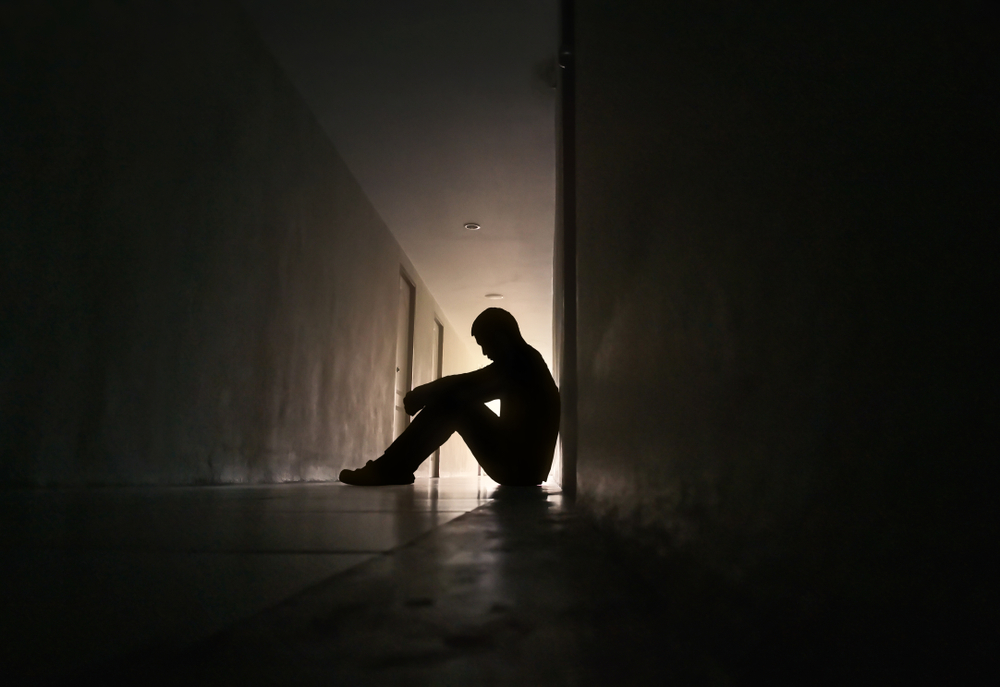Americans are killing themselves in record numbers. According to a study published in August by the Kaiser Family Foundation, between 2011 and 2022, more than half a million lives were lost to suicide, with 2022 showing the highest number of deaths on record, an increase of 16%. A November report from the CDC found that the rate of suicides involving guns has reached the highest level since officials began tracking it more than 50 years ago. According to that same report, youth suicide during the past two decades has risen 62%.
It’s admittedly small comfort that at least America’s elite institutions are in agreement that this should be of concern to our body politic. In a sense, that’s a bit of a surprise, given that polling consistently shows that more than 70% of Americans support euthanasia for the terminally ill (about half of Americans think doctor-assisted suicide is morally acceptable). Nine states and the District of Colombia have legalized physician-assisted suicide.
One way to explain this paradox in public opinion is that, while Americans believe suicide is a sad thing to be discouraged for those who are otherwise in good health, those who are in great pain, and especially those likely to die soon anyway, should have the option to end their life. Of course, determining the threshold for how much pain is too much, or when life sufficiently approximates death as to be dispensable, is a subjective enterprise. Thus it’s a public morality based not on objective principles of clear right and wrong but on dynamic, utilitarian opinions about what kind of life is worth living, and which kind of life should be ended.
This being the case, how a people understands suicide would seem to serve as a window into the essential character of a society and its relative health. That, at least, would be the opinion of the North African theologian and philosopher Augustine in his epochal book The City of God. Fifteen chapters into the first book of this tome touching on theology, politics, and ethics, Augustine presents an extended treatise on the diverging opinions between Romans and Christians on suicide, and what that signifies about competing visions of human flourishing.
Rome’s (and Our) Understanding of Suicide
The overarching objective of The City of God, as those with a minimal knowledge of the text are familiar, is to respond to charges by Roman pagans that Christianity is to blame for the terrible sacking of Rome by a Germanic mercenary army in 410. No, Augustine argues, it’s not Rome’s abandonment of the familiar ancient gods, polluting her worship by way of the comparatively weak religion of Christianity, that explains Rome’s humiliation. Rather, it’s Rome’s own failures to live up to the virtue and piety required by the true God. As Augustine sees it, City of God is “a book in which I have taken upon myself the task of defending the glorious City of God against those who prefer their own gods to the Founder of that City,” Augustine writes.
And yet, arrestingly, the first major subject discussed is suicide, with the esteemed bishop reconsidering some of the most famous cases in Roman history. Augustine first cites Regulus, who commanded the Roman forces in Africa in the First Punic War in the mid-third century B.C. After being defeated and captured in battle, the Carthaginians sent Regulus with an embassy to Rome, where, despite his fetters, he advised the senate to continue the war. Still a captive, Regulus returned to Carthage, where he was tortured to death, a martyr for the cause of Rome. Augustine acknowledges that because Regulus refused suicide, “our enemies are certainly right to praise a courage which rose superior to so dreadful a fate.” For Augustine, Regulus is the Roman who most closely approximates the virtue of Christians martyred for their faith.
Alternatively, Lucretia, another noble Roman woman of antiquity, offers a less sterling example.
After the son of the Roman King Tarquin raped Lucretia, she revealed the villain’s crime to her husband. Then she killed herself, unable, explains Augustine, “to endure the horror of the foul indignity.” Although the Romans assessed this to be an honorable act, Augustine does not: “That highly extolled Lucretia also did away with the innocent, chaste, outraged Lucretia.” This is so, he explains, because she was ashamed of the foul deed committed against her and afraid of the dishonor that would be associated with her, especially from those who might conjecture she has assented to the rape. In doing this, Lucretia lacked the virtue of longsuffering.
Other famous Romans killed themselves for fear of capture: “But many people did away with themselves to avoid falling into the hands of the enemy.” Yet, Augustine argues, “The question is not only whether they did, but whether they ought to have done so.” For example, there is the story of the suicide of Cato, the illustrious Roman citizen and “man of learning and integrity.” But even Cato’s friends, observes Augustine, sought to dissuade him, because it was a mark of weakness. Moreover, if suicide was the honorable route, why did Cato tell his son to trust in “Caesar’s kindness” rather than join him in suicide? Was it perhaps that Cato feared he would not be treated as mercifully as his progeny?
What is consistent across these Roman examples is the high premium this ancient society placed on honor, and that under certain circumstances, suicide was the most honorable route. Of course, Rome was not unique among civilizations for this view—many cultures with a strong sense of shame, such as Japan, have endorsed suicide as an appropriate act for one who has been shamed. From this angle, we can appreciate the distance between Rome and us: Americans, generally speaking, are not killing themselves because of shame, but despair, depression, and loneliness. And these are precisely the reasons Americans generally judge to be insufficient to justify suicide, because we believe them treatable by our therapeutic society. It is only those conditions that are untreatable, tied to pain or the approach of death, that a majority of Americans believe constitute a credible basis for self-destruction.
An Alternative Perspective on Death (and Life)
Whatever reason a society may give to justify suicide—the preservation of honor or the mitigation of pain—Augustine refutes them all as categorically immoral. This is so, he argues, because to kill oneself reflects a failure of virtue, a smallness of spirit. He writes:
We shall find that greatness of spirit is not the right term to apply to one who has killed himself because he lacked strength to endure hardships, or another’s wrongdoing. In fact we detect weakness in a mind which cannot bear physical oppression, or the stupid opinion of the mob; we rightly ascribe greatness to a spirit that has the strength to endure a life of misery instead of running away from it, and despite the judgment of men—and in particular the judgment of the mob, which is so often clouded in the darkness of error—in comparison with the pure light of good conscience.
The one who kills himself fails to exemplify the cardinal virtues. He lacks prudence because he judges the opinion of others or the prospect of pain as of more import than his very life, the greatest gift he possesses. He lacks justice because he fails to appreciate that, in killing himself, he harms those who depend upon him or, alternatively, encourages those also tempted to pursue the same fate. He lacks courage because he fails to steadfastly face calamity. And he lacks temperance because he loses self-control, driven instead by shame, fear, or pain.
Of course, because Augustine is writing from the perspective of a Christian, he also cites the fact that Scripture provides no endorsement of suicide. He explains:
It is significant that in the sacred canonical books there can nowhere be found any injunction or permission to commit suicide either to ensure immortality or to avoid or escape any evil. In fact we must understand it to be forbidden by the law “You shall not kill.”
Thus the ancient Christians, even when faced with terrible deaths of martyrdom that included torture or public humiliation, famously stood their ground, unwilling to commit the sin of murdering themselves. Certainly, some of the faithful did not, and cowardly denied their Lord—but the remarkable witness of so many early Christians persevering under great trial did much to demonstrate the credibility of their faith to pagan observers, many of whom, we know from the historical record, were amazed at the martyrs’ courage.
But a society need not necessarily be Christian to appreciate Augustine’s argument regarding suicide. Indeed, as his first example of Regulus demonstrates, even a pagan Roman could refuse self-destruction for the sake of a greater cause. Indeed, Augustine writes that “among all their heroes, men worthy of honor and renowned for virtue, the Romans have none greater to produce. … When the enemy were raging against him he chose to let his life be ended by any kind of torture rather than to die by his own hand.” Regulus, notes Catholic theologian C.C. Pecknold, offers “a shadowy resemblance” to later Christians who died for the sake of God.
What is important to appreciate, particularly for a pluralistic society like our own, is the danger posed by further opening the already wide aperture for condoned suicide. For as we have seen, once it’s opened, even for the sake of honor or alleviating pain, the law in its role as tutor condones what should be censured, and human life is consequently cheapened. Certainly those tempted to suicide perceive that fact, given that people in the West are killing themselves because of hearing loss, depression, or psychiatric disorders. No less than for this reason, Augustine, concludes, suicide is “monstrous.” The more a civilization encourages and allows the suicide of its citizens, the more that civilization acts to extinguish itself.

